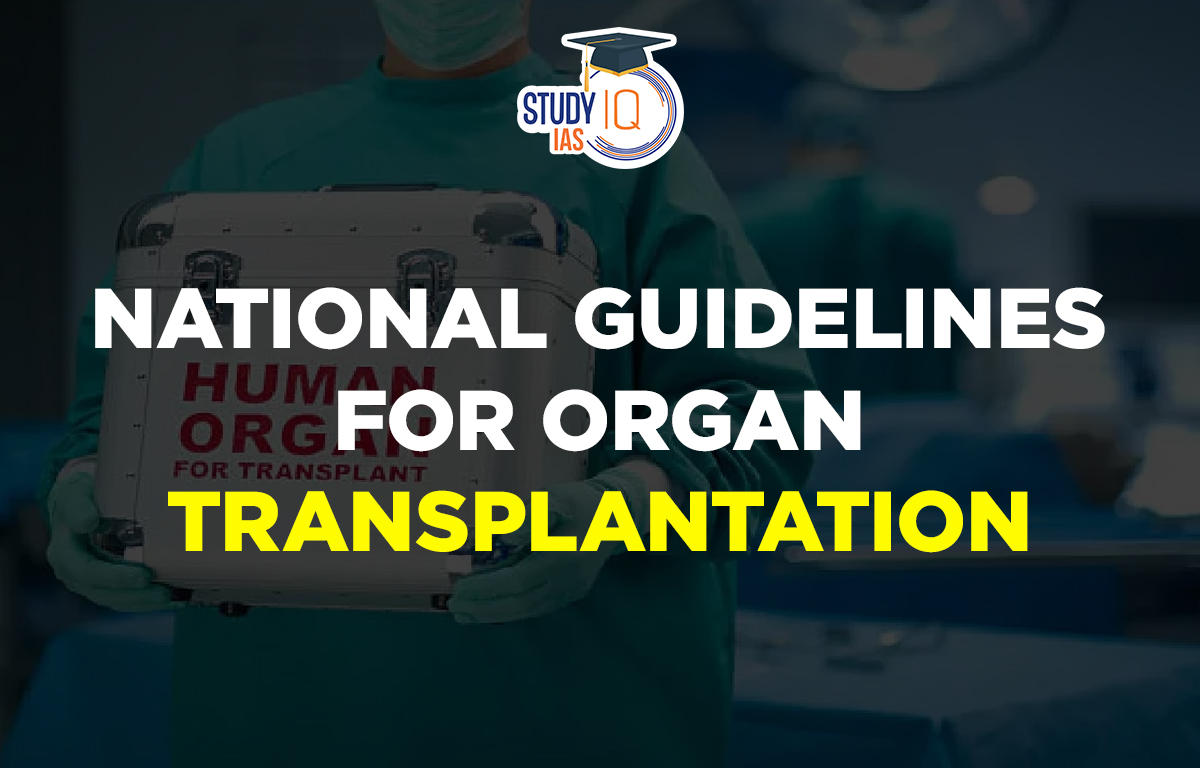Table of Contents
Context: The Union Health Ministry has removed a clause in the National Organ and Tissue Transplant Organisation guidelines that had a provision only for patients less than 65 years of age to register for transplantation.
New Guidelines
- Age Cap: The upper age limit has been removed as there is longer life expectancy.
- o Earlier, according to the NOTTO (National Organ and Tissue Transplant Organization) guidelines, an end-stage organ failure patient above 65 years of age was prohibited from registering to receive the organ.
- No Domicile Requirement:
- The domicile requirement to register as an organ recipient in a particular state has been removed under ‘One Nation, One Policy’ move.
- As per the recent guidelines, a needy patient can register to receive an organ in any state of his or her choice and will also be able to get the surgery done there.
- Nil Fee for Registration:
- There will be no registration fee that states (Gujarat, Telangana, Maharashtra, and Kerala) charged earlier for registration.
- States charged between Rs 5,000 and Rs 10,000 to register a patient on the organ recipient waitlist.

Need for the New Guidelines
- Comprehensive framework: The guidelines aim to establish a standardized and transparent regulatory framework for organ transplantation activities in India, ensuring that all organ transplantation activities are conducted ethically and transparently.
- The Centre is planning to make changes in the rules of Transplantation of Human Organs (Amendment) Act 2011 towards creating a national policy for transplantation.
- Different states have different rules; the Union government is considering changes to the rules so that there is a standard criterion followed in all states across the country.
- However, health is a state subject. Therefore, the rules formed by the central government will not be binding on the states.
- To protect the interests of donors and recipients: The guidelines provide for the establishment of an appropriate regulatory mechanism to oversee organ transplantation activities, including the establishment of a national registry of organ donors and recipients.
- To promote organ donation and transplantation: The guidelines provide for the establishment of a public awareness campaign to promote organ donation and transplantation and encourage the public to register as organ donors.
- To improve the quality of organ transplantation services: The guidelines aim to improve the quality of organ transplantation services in India by establishing a system for the accreditation of transplant centers and the monitoring of their performance.
Organ Transplantation in India
- India conducts the third highest number of transplants in the world.
- Kidney transplantation is the most common type of organ transplantation in India, followed by liver transplantation. Heart, lung, and pancreas transplantations are relatively rare.
- Organs from deceased donors accounted for nearly 17.8% of all transplants in 2022.
- The demand for organs in India far exceeds the supply. There is a severe shortage of organs, with an estimated 500,000 people in need of organ transplantation every year.
Steps taken by the Government for safe Organ Transplantation
- The Transplantation of Human Organs and Tissues Act (THOTA): The THOTA was passed in 1994 and amended in 2011 to regulate the removal, storage, and transplantation of human organs and tissues for therapeutic purposes.
- Establishment of the National Organ and Tissue Transplant Organization (NOTTO): The NOTTO was established in 2014 as a national-level organization to coordinate organ donation and transplantation activities across the country. The organization is responsible for maintaining a national registry of organ donors and recipients, promoting organ donation, and ensuring the safe and ethical conduct of organ transplantation activities.
- Accreditation of transplant centers: The government has established a system for accrediting transplant centers in the country. Accreditation is based on various criteria, such as the qualifications and experience of the medical personnel, the infrastructure and facilities available at the center, and the quality and safety of the transplantation procedures.
- Public awareness campaigns: These campaigns aim to educate the public about the importance of organ donation and encourage them to register as organ donors.
- Use of technology: The government is using technology to streamline the organ transplantation process and make it more transparent and efficient.





















 WhatsApp
WhatsApp